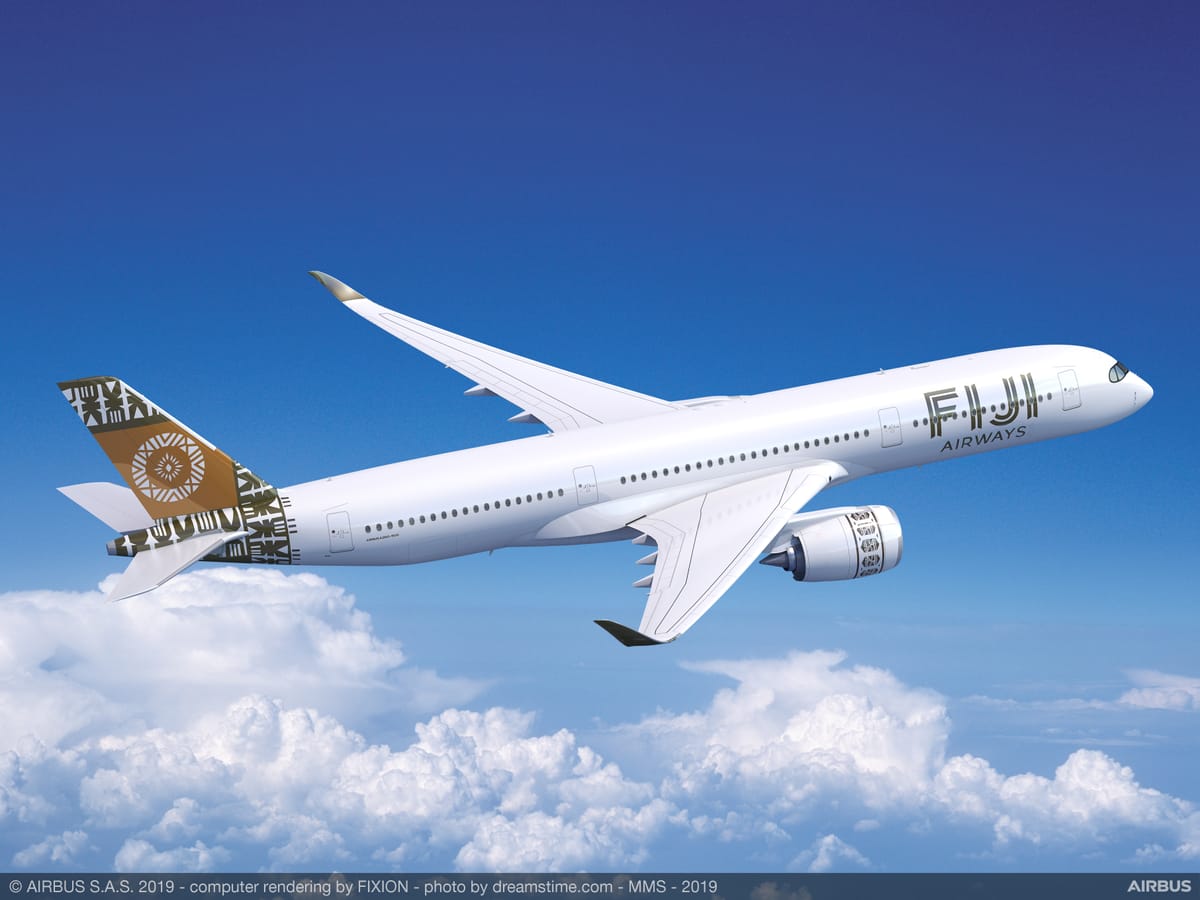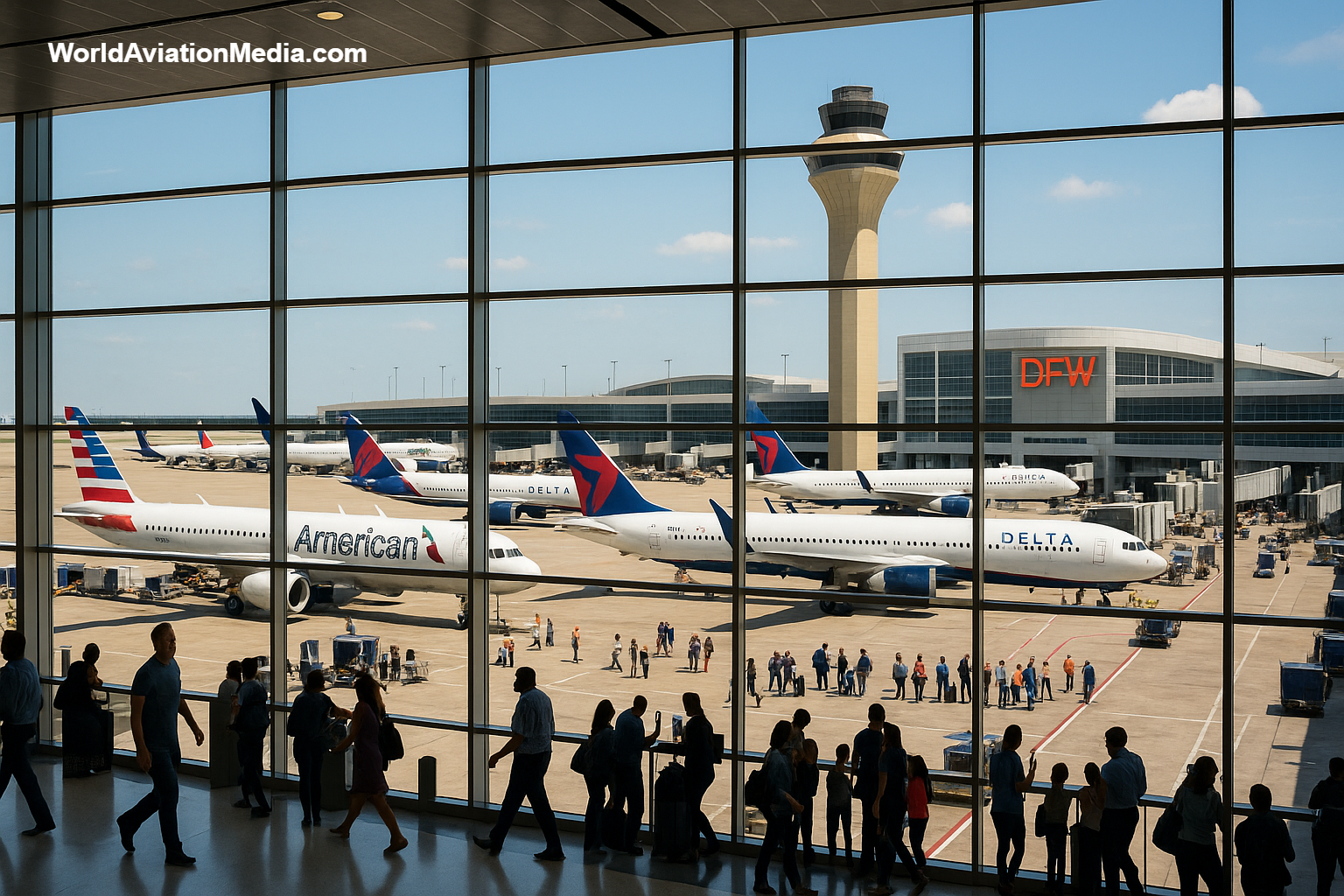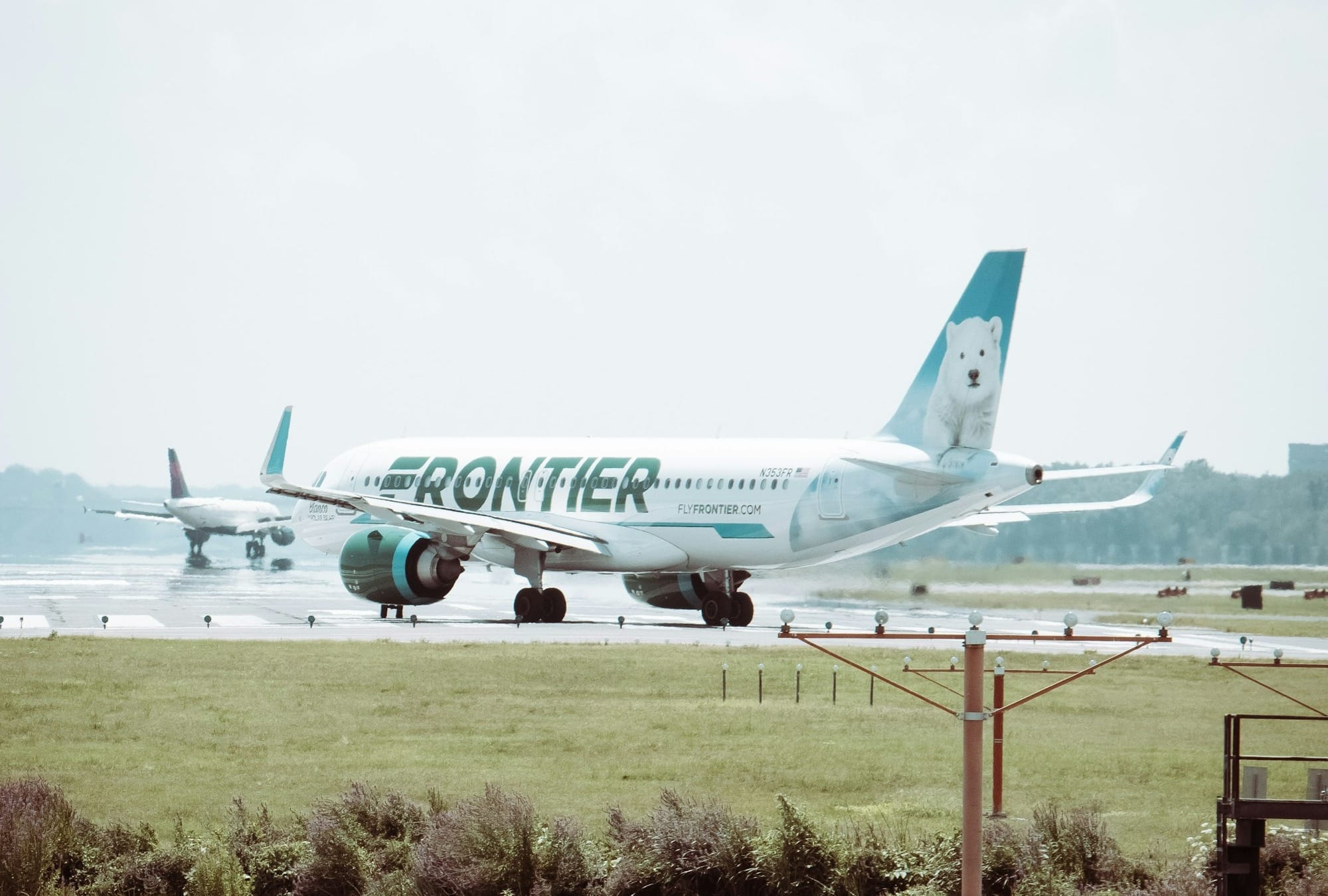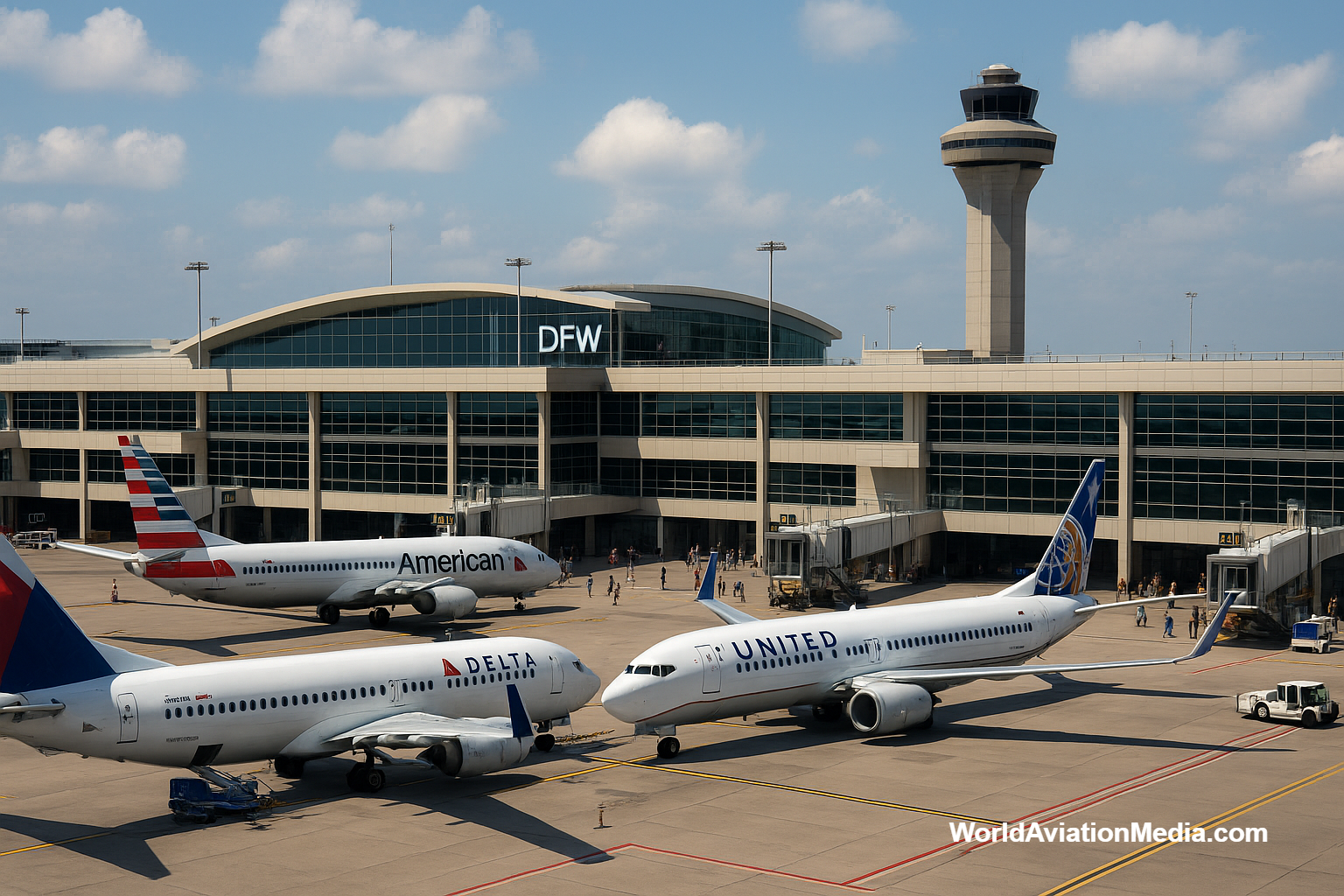Fiji Airways Applies to Launch New Route Between Nadi and Dallas-Fort Worth
Fiji Airways, the flag carrier of Fiji, has taken a significant step towards expanding its international network by applying to launch a new route connecting Nadi International Airport (NAN) in Fiji with Dallas-Fort Worth International Airport (DFW) in Texas, United States.

Fiji Airways Applies to Launch New Route Between Nadi and Dallas-Fort Worth
Key Takeaways
- Fiji Airways has applied to launch a new route connecting Nadi International Airport (NAN) in Fiji with Dallas-Fort Worth International Airport (DFW) in Texas.
- The proposed route aims to enhance tourism and trade between the South Pacific and the southern United States.
- The route would be one of the longest in Fiji Airways' network, likely operated by Airbus A350-900 aircraft.
- Approval from the U.S. Department of Transportation (DOT) is pending, with potential operations starting by summer 2025.
Introduction
Fiji Airways, the flag carrier of Fiji, has taken a significant step towards expanding its international network by applying to launch a new route connecting Nadi International Airport (NAN) in Fiji with Dallas-Fort Worth International Airport (DFW) in Texas, United States. This move represents a bold expansion into the North American market and could potentially open up new opportunities for tourism and trade between the South Pacific and the southern United States.
Application Details
The application, filed with the U.S. Department of Transportation (DOT), seeks approval for Fiji Airways to operate direct flights between Nadi and Dallas-Fort Worth. While the exact start date and frequency of the proposed service have not been disclosed, industry experts speculate that the airline might aim to commence operations by the summer of 2025, subject to regulatory approvals and market conditions.
CEO's Statement
Andre Viljoen, Managing Director and CEO of Fiji Airways, expressed enthusiasm about the potential new route:
"We are excited about the prospect of connecting Fiji directly with Dallas-Fort Worth. This route would not only provide convenient access for Texans and surrounding states to our beautiful islands but also offer a gateway for North American travelers to explore the wider South Pacific region."
Route Specifications
The proposed Nadi-Dallas route would be one of the longest in Fiji Airways' network, covering a distance of approximately 7,200 miles (11,600 kilometers). Such a long-haul flight would likely be operated by the airline's Airbus A350-900 aircraft, which Fiji Airways introduced to its fleet in 2019. These modern, fuel-efficient widebody jets are capable of flying such distances and offer a comfortable experience for passengers on long-haul routes.
Strategic Importance
If approved, this route would mark Fiji Airways' fourth destination in the United States, joining Los Angeles, San Francisco, and Honolulu. The addition of Dallas-Fort Worth to its network aligns with the airline's strategy to tap into new markets and diversify its revenue streams.
Reasons for Choosing Dallas-Fort Worth
- Hub Connectivity: DFW is a major hub for American Airlines, one of the world's largest carriers. This could potentially allow for seamless connections to numerous destinations across the United States, Canada, and Latin America through codeshare agreements.
- Growing Market: Texas has a robust economy and a growing population, which could provide a steady stream of leisure and business travelers to Fiji and the South Pacific.
- Underserved Route: Currently, there are no direct flights between the South Pacific islands and Texas, making this a unique offering in the market.
- Cargo Potential: In addition to passenger traffic, the route could open up new opportunities for cargo transport between the two regions.
Economic Impact
The potential economic impact of this new route could be significant for both Fiji and the Dallas-Fort Worth area. Tourism is a crucial sector of Fiji's economy, accounting for nearly 40% of its GDP before the COVID-19 pandemic. A direct connection to a major U.S. hub like DFW could help boost visitor numbers and support the country's economic recovery.
Statements from Officials
Aiyaz Sayed-Khaiyum, Fiji's Minister for Economy, Civil Service and Communications, commented on the potential benefits:
"This proposed route aligns perfectly with our strategy to diversify our tourism markets and strengthen Fiji's position as a premier destination for North American travelers. It would not only benefit our tourism sector but also create new opportunities for trade and cultural exchange."
John Ackerman, Executive Vice President of Global Strategy and Development at DFW Airport, stated:
"We're excited about the possibility of welcoming Fiji Airways to DFW. This potential new service would offer our customers a unique nonstop option to the South Pacific and further strengthen DFW's position as a premier global hub."
Challenges and Considerations
However, launching a new long-haul route is not without challenges. Fiji Airways will need to carefully assess the market demand and competition. While there are no direct competitors on this specific route, the airline will compete with other carriers offering one-stop services to Fiji via hubs in Los Angeles, San Francisco, or Honolulu.
Factors to Consider
- Fuel Prices: The success of the route will also depend on factors such as fuel prices, which can significantly impact the profitability of long-haul flights.
- Marketing Efforts: The airline will need to invest in marketing efforts to raise awareness about Fiji as a destination among Texan and southern U.S. travelers.
- Environmental Impact: Long-haul flights have a significant carbon footprint, and airlines are under increasing pressure to address their environmental impact. Fiji Airways has previously announced commitments to sustainability, including plans to modernize its fleet with more fuel-efficient aircraft. The use of the Airbus A350 on this route would align with these efforts, as it is one of the most fuel-efficient widebody aircraft currently in service.
Regulatory Approval Process
The regulatory approval process for the new route could take several months. The U.S. DOT will review Fiji Airways' application, considering factors such as the airline's financial fitness, safety record, and the potential impact on competition. Stakeholders, including other airlines and industry groups, will have the opportunity to comment on the application.
Broader Implications
If approved, the launch of this route could also have broader implications for air travel patterns in the Pacific. It might encourage other airlines to consider new long-haul routes connecting the South Pacific with non-traditional gateways in North America, potentially reshaping air travel in the region.
Industry Context
The proposed Nadi-Dallas route comes at a time when the global aviation industry is still recovering from the impacts of the COVID-19 pandemic. Many airlines are reassessing their networks and looking for new opportunities to drive growth. Fiji Airways, like many carriers, faced significant challenges during the pandemic but has shown resilience in rebuilding its network and operations.
Long and Thin Routes
As the industry recovers, there has been a trend towards "long and thin" routes – long-distance flights connecting city pairs that may not have enough demand for daily widebody service but can sustain less frequent operations. The Nadi-Dallas route could potentially fit this model, allowing Fiji Airways to capture a niche market.

Advertising
Regional Benefits
The success of this route, if launched, could also have positive spillover effects for other South Pacific nations. Fiji often serves as a gateway to smaller Pacific island nations, and improved connectivity with the United States could benefit the broader region in terms of tourism and trade.
Conclusion
In conclusion, Fiji Airways' application to launch a new route between Nadi and Dallas-Fort Worth represents an ambitious move to expand its reach in the North American market. If approved and successful, this route could significantly enhance connectivity between the South Pacific and the southern United States, bringing economic benefits to both regions. However, the airline will need to navigate challenges such as market demand, operational costs, and environmental considerations to ensure the route's long-term viability. As the aviation industry continues to evolve in the post-pandemic era, innovative route developments like this will play a crucial role in shaping the future of international air travel.
Summary
Fiji Airways has applied to launch a new route connecting Nadi International Airport in Fiji with Dallas-Fort Worth International Airport in Texas. This strategic move aims to enhance tourism and trade between the South Pacific and the southern United States. The route, likely operated by Airbus A350-900 aircraft, would be one of the longest in Fiji Airways' network. Approval from the U.S. Department of Transportation is pending, with potential operations starting by summer 2025. The new route could bring significant economic benefits to both regions but will require careful market assessment and consideration of environmental impacts.
Q&A Section
Q: When is Fiji Airways planning to start the new route between Nadi and Dallas-Fort Worth?
A: While the exact start date has not been disclosed, industry experts speculate that operations might commence by the summer of 2025, subject to regulatory approvals and market conditions.
Q: What aircraft will Fiji Airways use for the Nadi-Dallas route?
A: The route is likely to be operated by Fiji Airways' Airbus A350-900 aircraft, which are modern, fuel-efficient widebody jets capable of flying long distances.
Q: Why did Fiji Airways choose Dallas-Fort Worth as a new destination?
A: Dallas-Fort Worth was chosen for its strategic advantages, including hub connectivity with American Airlines, a growing market in Texas, the uniqueness of the route, and potential for cargo transport.
Q: What are the potential economic benefits of this new route?
A: The new route could boost tourism in Fiji, support the country's economic recovery, and enhance Dallas-Fort Worth's status as an international gateway, bringing economic benefits to both regions.
Q: What challenges might Fiji Airways face in launching this new route?
A: Challenges include assessing market demand, competition from one-stop services, fuel prices, marketing efforts, and addressing environmental impacts.
Q: How will the regulatory approval process work?
A: The U.S. Department of Transportation will review Fiji Airways' application, considering factors such as financial fitness, safety record, and competition impact. Stakeholders will have the opportunity to comment on the application.
Q: What broader implications could this route have for air travel in the Pacific?
A: The route could encourage other airlines to consider new long-haul routes connecting the South Pacific with non-traditional gateways in North America, potentially reshaping air travel in the region.








